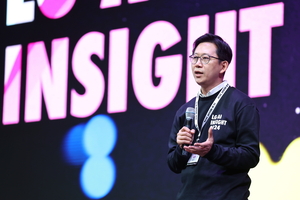LG Launches Korea’s First Reasoning AI Model to Compete with OpenAI and DeepSeek

LG Unveils Korea’s First Reasoning AI Model: Exaone Deep
Introduction to Exaone Deep
LG AI Research has proudly announced the launch of Exaone Deep, Korea’s first reasoning artificial intelligence model. This significant development was introduced at the Nvidia GTC conference held in San Jose, California, where LG aims to position Exaone Deep as a strong competitor to prominent AI players like OpenAI and DeepSeek.
Key Features of Exaone Deep
High Performance with Fewer Parameters
Exaone Deep 32B boasts an impressive 32 billion parameters, significantly fewer than many leading models. For comparison, DeepSeek R1 operates with 671 billion parameters but Exaone Deep manages to deliver superior performance in complex mathematical and scientific tasks. Parameters act as numerical values that help AI systems process data and make informed decisions.
- Parameters: Exaone Deep has 32 billion parameters.
- Comparison: DeepSeek R1 has 671 billion parameters.
Efficient Computing Requirements
A major advantage of Exaone Deep is its ability to perform brilliantly while using fewer graphical processing units (GPUs). According to LG, Exaone Deep only requires one Nvidia H100 chip to operate, whereas DeepSeek R1 needs 16 of these costly units. This demonstrates not only the technical efficiency of Exaone Deep but also its cost-effectiveness.
Academic Performance
Exaone Deep’s capabilities extend to various academic benchmarks, where it has demonstrated commendable performance.
Mathematics Assessments
In the 2025 Korean College Scholastic Ability Test (CSAT), Exaone Deep scored an impressive 94.5 points, outpacing other AI models, including OpenAI O1-mini (84.4 points) and DeepSeek R1 (88.8 points). Furthermore, it attained 80 points in the American Invitational Mathematics Examination equivalent to DeepSeek R1’s performance.
Graduate-Level Evaluations
The model also excelled in the Graduate-level Google-Proof Q&A Benchmark, scoring 66.1 points in areas such as physics, chemistry, and biology. In coding proficiency, Exaone Deep received a score of 59.5 in the LiveCodeBench, outperforming competitive reasoning AI models of a similar scale.
Reasoning and Inference Capabilities
The development of Exaone Deep reflects LG’s strong belief in enhancing reasoning abilities in AI. An LG official remarked that reasoning is essential for AI agents and robots to evolve in a manner that meets human needs.
Additional Models
Along with Exaone Deep 32B, LG also introduced the Deep 7.8B model and the 2.4B on-device model. These models have fewer parameters yet retain high performance levels:
- Deep 7.8B: This lightweight version manages to maintain 95% of the performance of the 32B model while being 24% of its size.
- On-Device Model 2.4B: Achieving 86% of the 32B model’s performance at just 7.5% of its total size.
These alternative models showcase LG’s commitment to efficiency without sacrificing performance.
Contributions to Open Source Community
LG made all variants of the Exaone Deep model available as open-source software. This move facilitates accessibility for researchers, developers, and other users, enabling them to build upon LG’s advancements in AI technology.
Future Aspirations from LG
Koo Kwang-mo, CEO of LG Corp., expressed that the company’s goal is to integrate cutting-edge technologies like AI into everyday life. By doing so, LG aims to allow individuals to focus more on rewarding and enjoyable tasks, which highlights their commitment to enhancing the user experience and convenience through technology.
Through these initiatives, LG AI Research reinforces Korea’s position in the global AI landscape, paving the way for new technological advancements and applications.




